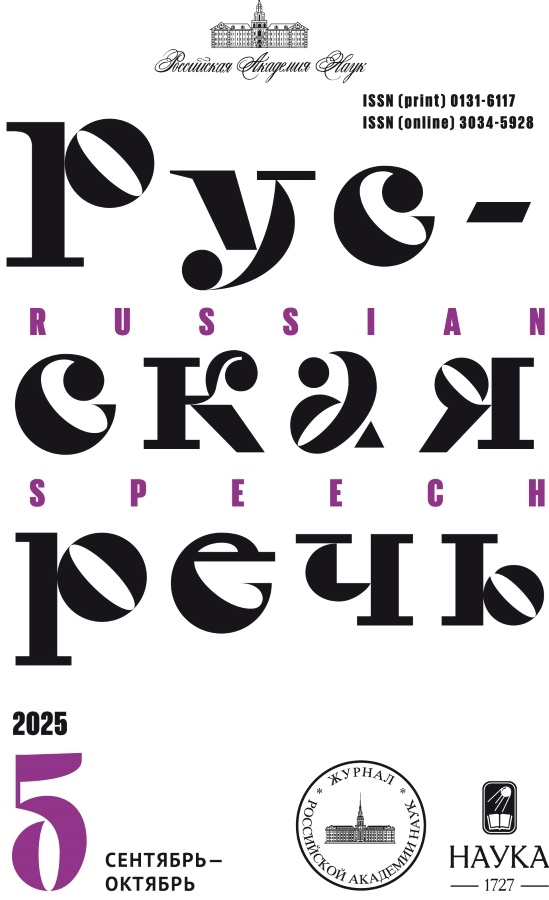The Meteonym Rain in the Traditional Speech Culture of the Russian North
- Authors: Nefedova E.A.1
-
Affiliations:
- Lomonosov Moscow State University
- Issue: No 5 (2025)
- Pages: 30-42
- Section: Issues of Modern Russian Language
- URL: https://transsyst.ru/0131-6117/article/view/692801
- DOI: https://doi.org/10.31857/S0131611725050038
- ID: 692801
Abstract
The article determines the scope and content of this universal concept, characteristic of the speakers of the traditional folk culture of the Russian North based on the analysis of the semantics and compatibility of the word rain and its derivatives. Attributive compatibility is mainly related to the statement of the objective properties of rain, and also expresses their general assessment — tuchnoj (heavy rain), morokovoj (drizzling rain), zalivnoj (torrential rain), gromovoj (thunderous rain), torokovoj (squally rain). Predicates of rain represent it as an active subject in motion. Its manifestations at different stages are represented as falling from above, flying, swimming, walking, running, jumping, rolling. Rain can frighten with an attack — to frighten, to show aggression — to beat, to lash, to whip, to chop, to squeeze, to rush at someone. Rain falling as a process independent of anyone's will is described by its predicates as weakly flowing — zapobryzgivalo (splashed), zasitushilo (extinguished), zabryzgalo (spattered). Verbal metaphors represent rain as a living being whom one can ask for help. Rain may turn a deaf ear to the request, or it may appear as an unexpected guest. Signs and beliefs related to rain are preserved in the dialects. The analysis of the compatibility properties of precipitation designations allows us to form a clear image of the RAIN as it is seen by the bearers of the traditional folk culture of the Russian North. The language reflects both the realistic and mythological perception of rainy weather, conveys the worldview of a person who is in the epicenter of natural events, cognizing them and trying to use them for his practical needs.
About the authors
E. A. Nefedova
Lomonosov Moscow State University
Email: eanefedova@gmail.com
Moscow
References
- Fasmer M. Ehtimologicheskii slovar' [Etymological dictionary]. Vol. I. Moscow, Progress Publ., 1964. 562 p.; Vol. IV. Moscow, Progress Publ., 1973. 852 p.
- Getsova O. G. (ed.). Arkhangel'skii oblastnoi slovar' [Arkhangelsk Regional Dictionary]. Vol. 11. Moscow, Nauka Publ., 2001. 479 p.
- Gol'din V. E. [The dominants of the traditional culture of rural communication]. Avanesovskii sbornik [Avanesovsky collection]. Moscow, Nauka Publ., 2002, pp. 58–64. (In Russ.)
- Tolstoi N. I. (ed.). Slavyanskie drevnosti. Ehtnolingvisticheskii slovar' [Slavic antiquities. Ethnolinguistic Dictionary]. Vol. 2. Moscow, Mezhdunarodnye Otnosheniya Publ., 1999. 680 p.










